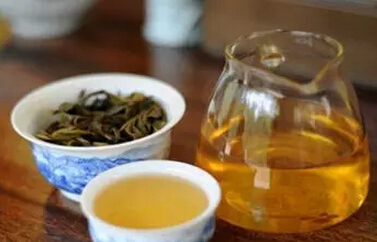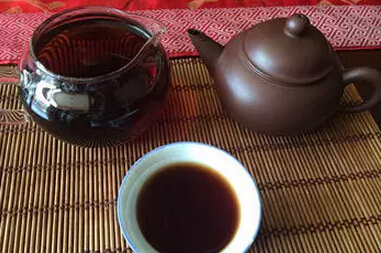Many people believe that fresh tea tastes the best, especially during the new tea season when enthusiasts rush to buy pre-Qingming or pre-rain teas. However, traditional Chinese medicine experts clarify that the notion of 'the fresher the tea leaves, the better' is actually a misconception.

Do Not Overindulge in Fresh Tea
Director Xiang Wei of the Gastroenterology Department at Zunyi Traditional Chinese Medicine Hospital explains that according to TCM principles, particularly 'nourishing yang in spring and summer,' drinking tea during this time helps dispel cold energy accumulated in the body during winter, promotes the growth of yang energy, refreshes the mind, and alleviates drowsiness. However, not all teas are better when fresh. For example, Pu'er tea and black tea improve with age. While green tea is best when fresh, it doesn’t need to be consumed immediately after picking.
Few can resist the allure of fresh tea, but the most recently picked tea may not necessarily have the best nutritional value. Tea leaves harvested less than a month prior contain high levels of caffeine, active alkaloids, and aromatic compounds, which can overstimulate the nervous system and be harmful to those with neurasthenia or cardiovascular conditions. Additionally, these substances may cause discomfort such as abdominal pain, constipation, and dry mouth in individuals with weak digestive systems.
Therefore, newly purchased tea should not be consumed immediately, especially in large quantities. It’s best to store it for at least half a month before drinking. During this time, some polyphenols, aldehydes, and alcohols will evaporate or oxidize, while the activity of caffeine, alkaloids, and aromatic substances will decrease, making the tea safer and healthier to consume.

Healthy Tea Drinking Practices
Many people experience symptoms like dizziness, insomnia, weakness, stomach pain, bloating, and constipation after drinking fresh tea—a condition known as 'tea drunkenness syndrome.' The best way to prevent this is to avoid excessive consumption, as moderation is key. Additionally, pairing tea with snacks such as dates, olives, peanuts, or small sweets can help. These foods, being either salty or sweet, replenish sodium ions and raise blood sugar levels, reducing the likelihood of tea drunkenness.
Moreover, it’s best not to use a thermos to brew tea, as the high, constant temperature environment destroys many of the tea’s vitamins, causes aromatic oils to evaporate, and leads to excessive dissolution of theophylline and tannins.
This not only diminishes the tea’s nutritional value but also makes it taste bitter and dull.
It’s advisable not to drink tea within an hour before or after meals to avoid interfering with protein absorption. Since tea contains vitamins and amino acids, it’s best not to consume it alongside protein-rich foods like beef, lamb, or seafood.
Furthermore, green tea is slightly cold in nature, so it should be consumed in moderation, especially by those with spleen and stomach yang deficiency, to avoid harming their yang energy. People with anemia, neurasthenia, hyperthyroidism, tuberculosis, gastric or duodenal ulcers, chronic constipation, kidney or urinary stones, as well as pregnant women, nursing mothers, and infants, should avoid drinking tea.